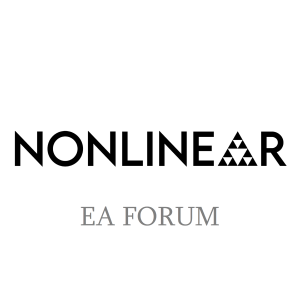
The Nonlinear Library: EA Forum
Education

EA - Shrimp welfare in wild-caught fisheries: New detailed review article by Ren Ryba
 2023-12-20
2023-12-20
Welcome to The Nonlinear Library, where we use Text-to-Speech software to convert the best writing from the Rationalist and EA communities into audio. This is: Shrimp welfare in wild-caught fisheries: New detailed review article, published by Ren Ryba on December 20, 2023 on The Effective Altruism Forum.Key points:In this post, we summarise some of the key results of our research on animal welfare in wild-caught shrimp fisheries.The full paper isfreely available as a preprint here, while it undergoes peer review before publication in a journal. It's a long and detailed paper, with many fancy tables and graphs - I would encourage you to check it out.We conducted a review of shrimp fisheries and interventions that could improve shrimp welfare in wild-catch fisheries.We calculated the number of shrimp caught in the world's wild-catch shrimp fisheries. This allows us to see how many shrimp are caught in each country and what species of shrimp they are.Our paper also includes an in-depth analysis of each of the world's top 25 countries, by number of shrimp caught.The authors of the full paper are: me (Ren Ryba), Prof Sean D Connell, Shannon Davis, Yip Fai Tse, and Prof Peter Singer.1. General overview of wild-caught shrimp fisheriesThere are many, many, many shrimp caught in wild-catch fisheries each year. Specifically, it is estimated that around 37.4 trillion shrimp are caught in wild-catch fisheries each year, and that is probably an underestimate.Broadly speaking, there are three types of shrimp:Caridean shrimp (781 billion caught each year). These shrimp are actually more closely related to crabs and lobsters than to the other two types of shrimp, which is why the evidence for shrimp sentience tends to be focused on this group. They are relatively small (e.g. a few centimetres). Caridean shrimp are mostly caught in cold-water (temperate) fisheries. Important caridean shrimp fisheries include the North Sea shrimp trawl fishery (the Netherlands, Germany, Denmark, and the UK) and the North Atlantic and Pacific shrimp trawl fisheries (USA, Canada, Russia, Greenland).Penaeid shrimp (287 billion caught each year). These shrimp are mostly in warm-water (tropical) fisheries, and they physically tend to be a bit larger in body size. Important penaeid shrimp fisheries include the trawl fishery in the USA, trawl and small-scale fisheries in Latin America, and trawl and small-scale fisheries in East and South-East Asia.Sergestid shrimp (36.3 trillion caught each year). This group includes the "paste shrimp", Acetes japonicus. Sergestid shrimp are tiny, sometimes even microscopic. These are very common in small-scale fisheries in East and South-East Asia, as well as East Africa.It's important to understand that these three types of shrimp are distinct. Caridean shrimp are actually more closely related to lobsters, crabs, and crayfish than they are to penaeid and sergestid shrimp. There are important differences in their biology, their evolutionary histories, the corresponding fishing industries, the amount of research that has been conducted on sentience, and - most importantly - the tractability of welfare improvements in fisheries. Those differences are explained in more detail in the full report.(Credit: Shrimp silhouettes in the evolutionary tree are from phylopic.org. Caridean shrimp: Maija Karala. Penaeid shrimp: Almandine (vectorized by T. Michael Keesey). Crab: Jebulon (vectorized by T. Michael Keesey). Lobster: Guillaume Dera.)We can also distinguish between two major types of shrimp fisheries:Industrial trawl fisheries. These may be large, high-power trawler vessels that can conduct journeys for weeks or months at a time. These vessels may be technologically sophisticated, with many processing, packaging, and storing shrimp on-board. Industrial trawl fisheries are common in both developed (e.g. North America, Europe) and developing (e.g. Latin America, China, South Korea, and many South-East Asian) countrie...
More Episodes
Create your
podcast in
minutes
- Full-featured podcast site
- Unlimited storage and bandwidth
- Comprehensive podcast stats
- Distribute to Apple Podcasts, Spotify, and more
- Make money with your podcast
It is Free
- Privacy Policy
- Cookie Policy
- Terms of Use
- Consent Preferences
- Copyright © 2015-2024 Podbean.com





